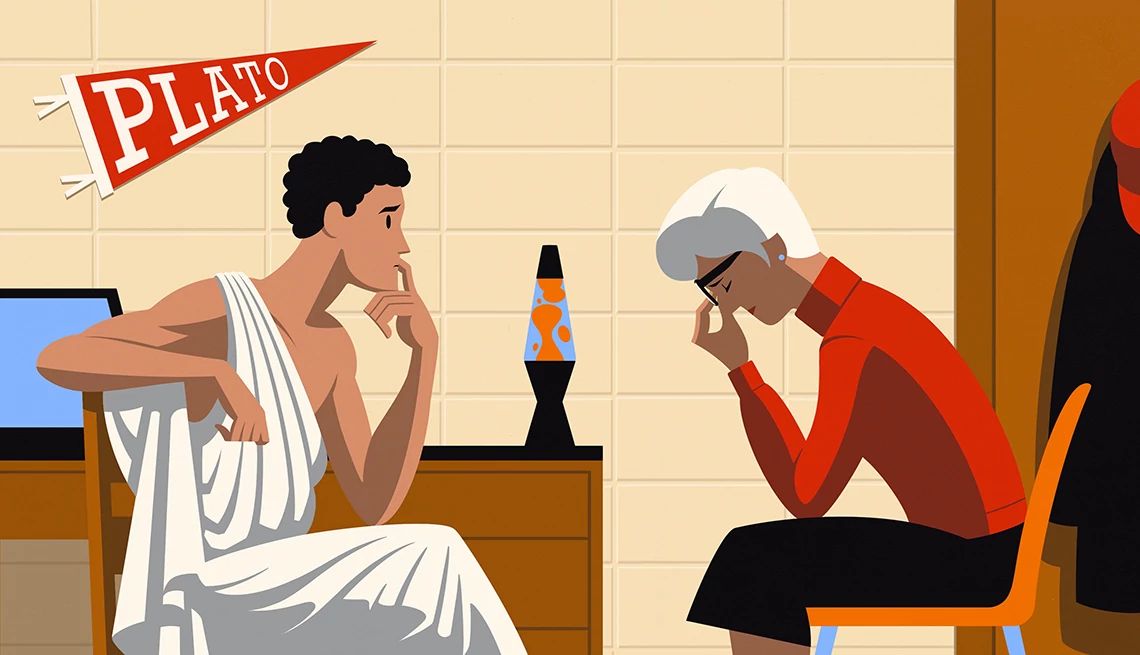AARP Hearing Center


If you graduated from college decades ago, brace yourself for sticker shock. For the 2024-2025 academic year, the average tuition and fees for in-state undergraduate students attending a four-year public college reached $11,610, more than double the average cost 30 years ago, according to the College Board. The cost to attend a four-year private college: an eye-popping $43,350, up from $24,840 over the same period.
Helping your grandchild pay for college can alleviate some of the financial strain. Some grandparents contribute to a 529 plan. Some offer their grandchildren cash or loans. Some pay tuition directly to their grandchild’s college to avoid gift taxes.
But what should you do when your grandchild chooses a major that you don’t approve of?
I helped my grandchild save a lot of money for college by making contributions to his 529 plan since he was born. He’s now a freshman and decided he wants to major in philosophy. Philosophy! He should be studying something that will actually lead to a job when he graduates. What can I say to him without hurting his feelings?
Let me start by commending you for helping your grandchild pay for college. It’s amazing that you’ve been able to offer him financial assistance in this way. And with such generous support, I can understand the desire to have some say or influence in guiding your grandson to a degree you believe will lead to a successful career.
That said, if you didn’t set expectations or stipulations for the funds when you gave them, it’s harder to make a claim now on how they can be used.


Money Manners
Lizzie Post is AARP's financial etiquette columnist. She is the great-great-granddaughter of etiquette legend Emily Post. She’s also the co-president of The Emily Post Institute, co-author of Emily Post’s Etiquette: the Centennial Edition and co-host of the Awesome Etiquette podcast.
Harder, but not impossible.
Like so many things when it comes to etiquette, it’s not if you choose to say something — it’s how you say it.
Talking directly to him about his choice to study philosophy (or, really, any degree you disapprove of), if you’re judging that choice, could damage your relationship if he perceives your message or tone as condescending or unsupportive. That’s certainly not your goal and not how you want to be seen by your grandson, especially after all the support you’ve already provided as a grandparent.




































































You Might Also Like
I Think Tipping Has Gone Too Far. Am I a Total Cheapskate?
Nearly half of baby boomers say U.S. tipping culture has spiraled out of control
We’re Ready to Kick Our Daughter Off Our Cellphone Plan
Here’s how parents should break the news
Our Friends Drink but We Don't. We're Tired of Splitting Restaurant Bills 50/50
The tactful way to ensure you don't pay for your dining companions' booze